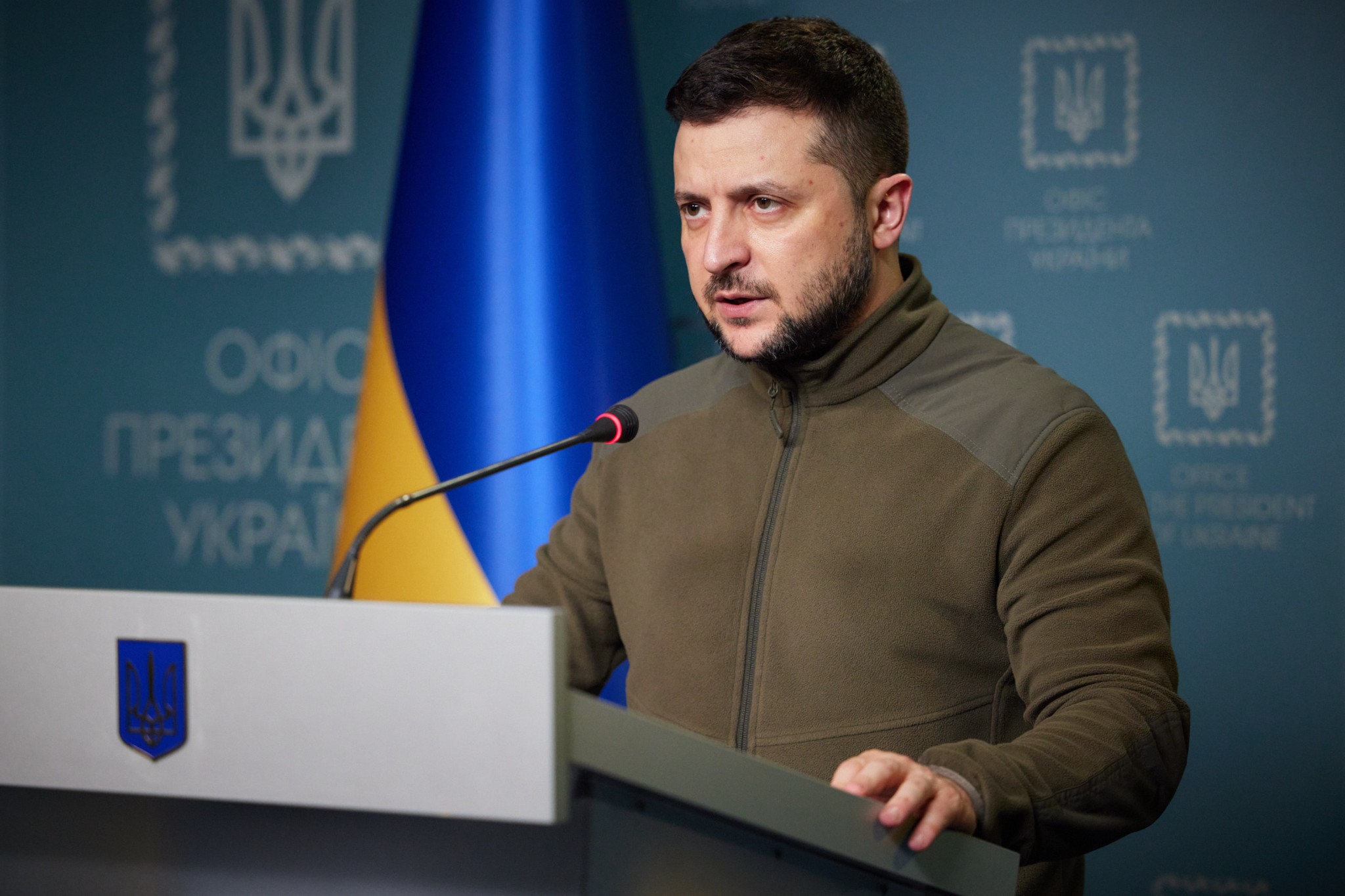 Image Credit: Office of the President of Ukraine
Image Credit: Office of the President of Ukraine
The Political Challenges to Providing Funding for Ukraine
In the ongoing war in Ukraine, foreign aid is becoming politically entangled in both EU and American politics. On February 1st, EU leaders met to pass further funding for Ukraine. The EU had been battling to force Hungary into line on this issue since December, when Prime Minister Viktor Orban vetoed further funding. Meanwhile, the U.S. has been mired in a political standoff for further funding, House Republicans aim to add new border security policies to the funding, policies that President Biden does not support, creating a political stalemate. With foreign aid on the line, Ukraine faces significant threats to its ability to continue its fight. Putin has sensed the weakness and seized the opportunity, increasing probing attacks against Ukraine.
Funding for Ukraine from its two biggest donors, the U.S. and EU, has been trapped in political battles since October and December respectively. Orban vetoed an EU bill that proposed an over 50-billion-euro aid package to Ukraine in December. EU leaders have since been trying to entice Orban to capitulate with the promise of releasing previously frozen funds. These funds were frozen in response to Hungary’s restrictive civil rights laws and democratic backsliding by Orban. After further negotiations, in which the EU also threatened further consequences, the aid package passed.
On the contrary, Biden’s request for $61.5 billion is stalled in Congress as many Republican lawmakers, including House Majority Leader Mike Johnson, demand a deal that would link Ukraine funding to new border security policies. Thus far the various meetings between Biden and House Republicans have not resulted in a deal, and electoral politics are likely playing a factor.
In another political blow to Ukraine, American public support for the war has been on the decline. A recent Gallup poll shows that an increasing number of Americans believe the U.S. is supplying too much aid to Ukraine. According to that poll, “Forty-one percent of Americans overall say the U.S. is doing too much, which has risen from 24% in August 2022 and 29% in June 2023.” Meanwhile, EU citizens maintain high levels of support for Ukraine; about 72% agree that the EU should continue to provide financial support to Ukraine. About half of Europeans think that the EU should speed up Ukraine’s admission to the EU, but this is sharply delineated by country; for example, 72% of Lithuanians support Ukraine’s ascension, compared to only 24% of Hungarians.
So why has support for Ukraine diminished both politically and publicly in America? There are three main reasons behind the decline in support: perceptions of an increased border crisis, the multitude of other foreign security concerns, and fatigue. As seen in the attempts to tie Ukraine funding to border security policy changes, Americans are deeply concerned about this closer issue. People may think that it is more important to focus on such domestic issues that are increasing in significance rather than a stagnant war that the U.S. has already poured billions into. Similarly, the many other security challenges happening in the world today, the war in Gaza, tensions between Taiwan and China, as well as North and South Korea, all also tug at U.S. military and financial support. Americans historically also have a short news cycle attention span and may be more concerned about the current news cycle than the almost two-year-old war in Ukraine. The limited forward progress in this war also adds to the fatigue of the American people, who may mistake the lack of total victory as being an indicator of wasted aid—when in reality the continued existence of Ukraine is testament to the aid’s effectiveness.
Despite the declining support, supporting Ukraine should still remain a priority. Containing Russian aggression through the Ukraine war is necessary to prevent a larger, more expensive conflict in Europe, one which could see American troops in combat. Right now, Ukraine is holding Russia’s military at bay and is successfully grinding down its forces so that they are unable to attack elsewhere. It can only continue to do so and defend the rest of Europe through continued foreign support. If the U.S. doesn’t maintain the support required to prevent a Russian victory, the risk of further conflict increases. Russia will not stop at Ukraine, as it did not stop at Crimea. It is imperative that the U.S. and the EU continue to supply Ukraine with funds and weapons while it is just Ukraine fighting, before Russian expansion inevitably seeps deeper into Europe.





